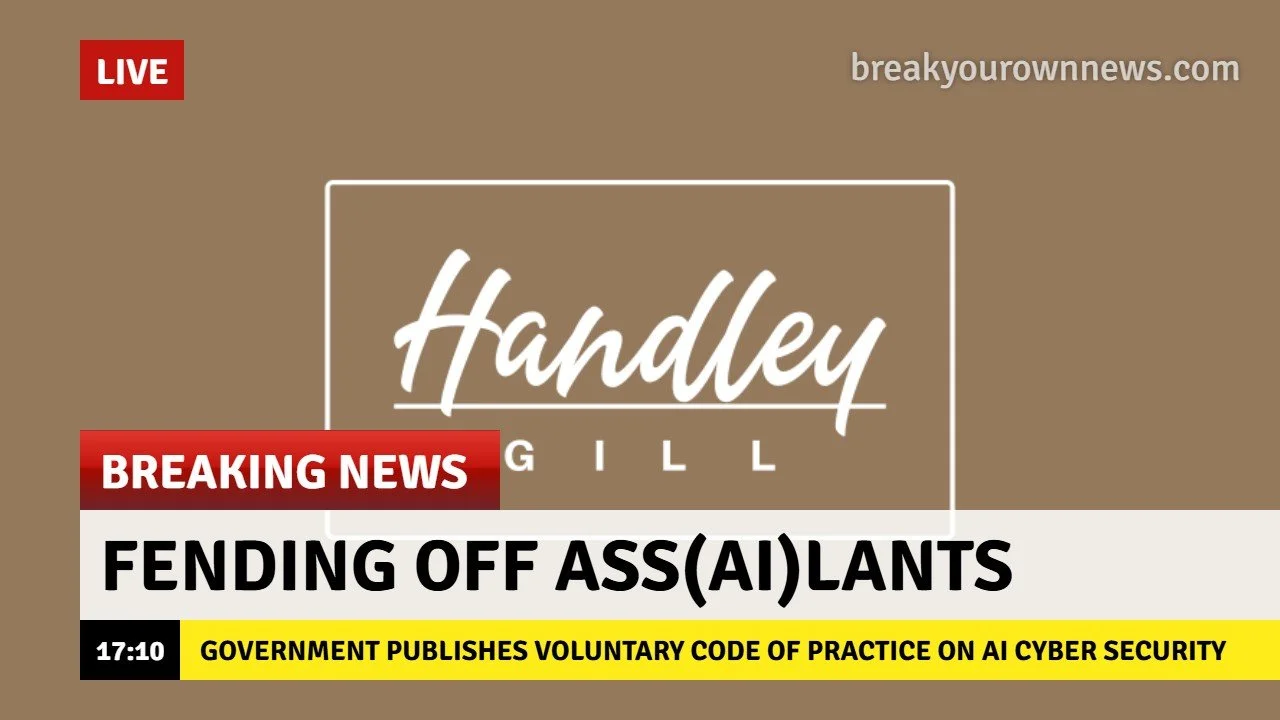Handley Gill’s AI governance consultants identify the children’s rights under the UN Convention on the Rights of the Child most relevant to the development and deployment of AI systems, and consider their enforceability in the context of summarising the 5Rights Foundation’s recently launched Children and AI Design Code and analysing its implications for developers and deployers of AI systems, addressing the extent to which they are obliged to comply with its requirements.
Read MoreHandley Gill’s specialist data protection consultants summarise and comment on the efficacy of the Information Commissioner’s strategy to enforce its Age Appropriate Design Code aka the Children’s Code, the likely targets of future enforcement activity and, the impact of regulatory co-operation with Ofcom.
Read MoreHandley Gill’s specialist artificial intelligence (AI) governance consultants analyse the requirements of the Council of Europe’s Framework Convention on Artificial Intelligence (AI), and its HUDERIA methodology for conducting artificial intelligence (AI) impact assessments (or conformity assessments under the EU AI Act) addressing the impact of AI systems impact on human rights, democracy and the rule of law.
Read MoreHandley Gill’s specialist data protection consultants highlight the European Data Protection Board’s (EDPB’s) announcement of action throughout 2025 under its Co-ordinated Enforcement Framework on the right to erasure, or right to be forgotten, under Article 17 GDPR, identifying likely recipients, how controllers can prepare and how they might respond.
Read MoreTo coincide with Public Sector AI Week 2025, Handley Gill’s specialist AI governance consultants consider how public law obligations apply to public authorities and other bodies carrying out public functions when using artificial intelligence (AI) and the measures they can take to demonstrate compliance and minimise the risk of judicial review challenge.
Read MoreHandley Gill’s specialist content moderation, online safety and responsible AI consultants consider the report of the Independent Pornography Review carried out by Baroness Bertin, which has implications not only for platforms hosting pornographic content but for producers, adult performers and creators, ancillary service providers, advertisers, AI developers and regulators.
Read MoreWhen, to coin the Little Britain phrase, the “computer says no”, what information are individuals entitled to know? Handley Gill’s specialist data protection and responsible AI consultants summarise the ruling in C‑203/22 CK v Magistrat der Stadt Wien (commonly referred to as the Dun & Bradstreet case) determining how to comply with the obligation to provide meaningful information on automated decision-making.
Read MoreHandley Gill‘s specialist responsible AI and human rights consultants explain the basis for the argument in their response to the government’s consultation on copyright and artificial intelligence (AI) that proposals to create an exception to the exclusive rights of copyright holders to permit web scraping/data mining for the training validation and testing of AI models infringe human rights.
Read MoreHandley Gill’s specialist responsible AI consultants respond to the Government’s consultation on Copyright and Artificial Intelligence (AI), in which the Government proposes to create a copyright exception for data mining which would require rights holders to opt out through approved means and that AI developers be transparent about the sources of their AI training material.
Read MoreThis Safer Internet Day 2025, Handley Gill considers recent developments and reports on the UK government’s policy stance on the regulation of Big Tech and how Labour’s ambitions have been tempered since President Trump’s inauguration, particularly in relation to online safety and artificial intelligence, and even pandering to AI developers by taking steps toward reforming copyright laws restricting data mining for AI training.
Read MoreHandley Gill’s specialist responsible AI consultants highlight the provisions of the EU AI Act coming into force on 02 February 2025 which ban certain AI practices within the EU, including manipulative or deceptive techniques, exploiting vulnerabilities, social scoring, predictive policing, facial recognition databases based on scraping, emotion recognition at school or work, biometric categorisation and real time biometric identification in public spaces for law enforcement, as well as new positive obligations on AI developers and deployers relating to AI literacy.
Read MoreHandley Gill’s specialist responsible artificial intelligence (AI) consultants consider the requirements of the new Code of Practice for the Cyber Security of AI published by the Department for Science, Innovation and Technology and highlight the implications of the Code of Conduct for stakeholders in the AI lifecycle.
Read MoreHandley Gill Limited’s specialist responsible AI consultants summarise the UK government’s AI Opportunities Action Plan prepared by Matt Clifford CBE and published on 13 January 2025, identifying and analysing the key recommendations affecting data protection, AI regulation, intellectual property and copyright and, ESG.
Read MoreHandley Gill’s specialists responsible artificial intelligence (AI) consultants consider the implications of the new mandatory public sector algorithmic transparency recording standard for public sector bodies deploying AI models and other algorithmic tools, as well as for AI developers who wish to retain the confidentiality of their commercially sensitive AI models.
Read MoreHandley Gill’s specialist responsible artificial intelligence (AI) consultants summarise the UK government’s consultation on Copyright and Artificial Intelligence and consider the implications of the proposed copyright reforms for rights holders.
Read MoreUnlike the Chemical Brothers, Prime Minister Keir Starmer called on regulators to hold back in order to galvanise economic growth in his speech to the International Investment Summit on 14 October 2024. We consider the implications for UK regulation of artificial intelligence (AI), digital markets and data protection by the ICO, CMA and Regulatory Innovation Office, and forthcoming legislation.
Read MoreHandley Gill’s specialist responsible AI consultants analyse the proposed requirements for public authorities to comply with AI ethical principles set out in Lord Clement-Jones’ private members bill, the Public Authority Algorithmic and Automated Decision-Making Systems Bill.
Read MoreThe UK government has today (05 September 2024) joined the US, EU and other countries in signing the Council of Europe’s Framework Convention on Artificial Intelligence and Human Rights, Democracy and the Rule of Law. Handley Gill’s specialist artificial intelligence (AI) consultants consider the implications of this statement of intent for the UK’s current and proposed legislation as announced in the King’s Speech 2024, and what new laws and amendments will be necessary to enable the UK to meet the AI Treaty’s obligations.
Read MoreHandley Gill’s consultants consider the implications of the Labour Party’s immediate legislative priorities as set out in the King’s Speech 2024 for data protection, privacy, reputation management, freedom of expression, online safety, cyber security, digital markets regulation, artificial intelligence (AI), content regulation, human rights and ESG, and identify the manifesto commitments that will be delayed.
Read MoreHandley Gill’s specialist consultants consider what a Labour Party AI Bill, announced in the King’s Speech on 17 July 2024, will regulate, considering its manifesto commitments and the TUC’s proposed Artificial Intelligence (Employment and Regulation) Bill, and contrasting with Lord Holmes’ Artificial Intelligence (Regulation) Bill which fell at the dissolution of the last Parliament and the EU’s AI Act.
Read More















![[Regulators] hold back… galvanise](https://images.squarespace-cdn.com/content/v1/5ec11b5f323e5100c9ea427e/1729004889209-7LJDQ46BGOEOWH7LGFMR/2024.10.15+Galvanise+.jpg)



